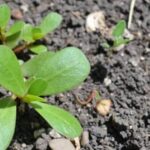Looking to develop your green thumb and grow your own organic vegetables at home? Look no further. In this article, we will explore the best organic vegetable gardening books that will help you kickstart an exciting and rewarding journey into the world of organic gardening. Whether you are a beginner or an experienced gardener, these books will provide valuable insights, tips, and techniques for successful organic vegetable cultivation.
Organic gardening has become increasingly popular due to its numerous benefits for both the environment and personal health. By using natural methods and avoiding synthetic chemicals, organic vegetable gardening not only produces healthier and more nutritious crops but also promotes sustainable and eco-friendly practices. As interest in sustainable living continues to grow, the demand for reliable resources on organic vegetable gardening has never been higher.
Before diving into our top picks for the best organic vegetable gardening books, it’s crucial to understand the fundamental principles of organic gardening. From soil health to pest management, organic gardeners prioritize biodiversity, composting, and natural fertilizers. By following these principles, gardeners can create thriving ecosystems that support the growth of healthy and productive vegetable plants. So, let’s get started on our journey towards becoming successful organic vegetable gardeners.
Benefits of Organic Vegetable Gardening
When it comes to organic vegetable gardening, there are numerous benefits that can be reaped from this sustainable and environmentally-friendly practice. Not only does organic vegetable gardening promote healthier and more nutritious produce, but it also helps to minimize the use of harmful chemicals and pesticides, thereby reducing the negative impact on the environment.
Health Benefits
One of the most significant advantages of organic vegetable gardening is the improved health benefits that come with consuming organically-grown produce. Organic vegetables are free from synthetic pesticides and fertilizers, making them a safer and healthier option for consumption. Additionally, organic vegetables have been found to contain higher levels of essential vitamins and minerals compared to conventionally-grown produce.
Environmental Impact
Organic vegetable gardening also has a positive impact on the environment. By avoiding the use of synthetic chemicals and promoting natural pest control methods, organic gardening helps to protect biodiversity and minimize pollution of soil and water sources. Furthermore, organic farming practices contribute to soil health and sustainability, which in turn supports a more balanced ecosystem.
Cost Savings
Another benefit of organic vegetable gardening is the potential for cost savings in the long run. While there may be an initial investment in setting up an organic garden, the need for expensive chemical fertilizers and pesticides is significantly reduced or eliminated altogether. This can lead to substantial savings over time, making organic vegetable gardening a financially viable option for many individuals.
Understanding Organic Gardening Principles
Organic gardening is a popular and sustainable way of growing fruits and vegetables without the use of synthetic fertilizers or pesticides. Understanding the principles of organic gardening is essential for anyone looking to start their own organic vegetable garden. There are several key principles to keep in mind when it comes to organic gardening, including:
- Healthy Soil: Organic gardening focuses on building and maintaining healthy, fertile soil by using compost, cover crops, and natural fertilizers. This helps to promote strong, vigorous plant growth and overall plant health.
- Biodiversity: Encouraging biodiversity in the garden helps to create a balanced ecosystem, which can naturally help control pests and diseases. This can be achieved by planting a variety of different crops, flowers, and herbs.
- Natural Pest Control: Organic gardeners rely on natural methods for controlling pests and diseases, such as beneficial insects, companion planting, and physical barriers like row covers or netting.
In order to fully grasp these principles and put them into practice, it’s important to refer to reliable resources such as the best organic vegetable gardening books available. These books provide valuable information on how to implement organic gardening techniques in your own garden while also offering tips and advice from experienced gardeners.
When choosing books on organic vegetable gardening, look for ones that cover a wide range of topics including soil health, pest management, companion planting, crop rotation, and more. Some recommended best organic vegetable gardening books include “The Vegetable Gardener’s Bible” by Edward C. Smith, “Rodale’s Basic Organic Gardening” by Deborah L. Martin, and “The Complete Guide to Companion Planting” by Dale Mayer.
Whether you’re a beginner or an experienced gardener looking to expand your knowledge of organic gardening principles, these books offer practical guidance that can help you achieve success in your own organic vegetable garden.
Criteria for Choosing the Best Vegetable Gardening Books
When it comes to choosing the best organic vegetable gardening books, there are several important criteria to consider. These criteria can help ensure that you select a book that aligns with your gardening goals and provides the information you need to be successful in your organic gardening endeavors. Here are some key factors to keep in mind when evaluating potential vegetable gardening books:
- Author Expertise: Look for books written by authors with a background in organic gardening and horticulture. Authors who have practical experience and/or academic credentials in this field are more likely to provide reliable and valuable information.
- Comprehensive Content: The best organic vegetable gardening books should cover a wide range of topics, including soil health, plant nutrition, pest and disease management, crop rotation, companion planting, and more. A comprehensive book will serve as a valuable reference guide for all stages of the gardening process.
- Practical Guidance: Choose books that offer practical, actionable advice for implementing organic gardening principles in your own garden. Look for step-by-step instructions, helpful tips, and troubleshooting solutions for common challenges.
In addition to these criteria, it’s also important to consider the specific needs of your garden and your level of experience as a gardener. Whether you’re a beginner looking to start your first garden or an experienced gardener seeking advanced techniques, there are excellent organic vegetable gardening books available to meet your individual needs.
Ultimately, the best organic vegetable gardening books will empower you with the knowledge and confidence to grow healthy, bountiful crops while minimizing environmental impact through sustainable practices. By carefully evaluating potential books based on these criteria, you can make an informed decision and invest in a valuable resource for your organic gardening journey.
Top 5 Best Organic Vegetable Gardening Books for Beginners
When it comes to starting your own organic vegetable garden, having the right resources at hand can make all the difference. One of the best resources for beginner gardeners are books that provide clear and concise information on how to start and maintain an organic vegetable garden. The following are five of the best organic vegetable gardening books for beginners which cover a wide range of topics including soil health, pest management, and plant selection.
The Vegetable Gardener’s Bible by Edward C. Smith
This book is a comprehensive guide for beginners that covers everything from planning your garden layout to harvesting your vegetables. It provides detailed information on soil preparation, pest control, and companion planting. The book also includes helpful charts and illustrations that make it easy for beginners to understand and implement the concepts discussed.
Carrots Love Tomatoes by Louise Riotte
This classic book is a great resource for beginner gardeners interested in learning about companion planting. Riotte provides valuable information on which vegetables, herbs, and flowers should be planted together to deter pests and promote healthy growth in an organic garden.
Rodale’s Basic Organic Gardening: A Beginner’s Guide to Starting a Healthy Garden
This book is a great starting point for anyone looking to start their own organic vegetable garden. It covers all the basics of organic gardening including composting, weed management, and natural pest control. The book also includes helpful tips on how to create a sustainable and environmentally friendly garden.
These books are just a few examples of the wealth of knowledge available to beginner gardeners. Whether you’re interested in growing your own vegetables in containers or starting an entire backyard farm, there is a book out there that can help guide you through the process of successful organic vegetable gardening.
Advanced Organic Vegetable Gardening Books for Experienced Gardeners
If you’re an experienced gardener looking to take your organic vegetable gardening to the next level, there are several advanced gardening books that can provide valuable guidance and information. These books are written for those with a solid foundation in organic gardening principles and practices, and they often delve into more specialized topics and techniques.
One of the best organic vegetable gardening books for experienced gardeners is “The New Organic Grower” by Eliot Coleman. This comprehensive guide covers advanced techniques for extending the growing season, maximizing yield, and maintaining soil fertility. Coleman’s expertise and innovative approach make this book a must-read for experienced gardeners looking to refine their skills.
Another highly recommended advanced organic vegetable gardening book is “Gaia’s Garden: A Guide to Home-scale Permaculture” by Toby Hemenway. This book explores the principles of permaculture, which emphasizes sustainable and self-sufficient gardening practices. With a focus on creating harmonious ecosystems within the garden, Hemenway provides valuable insights for experienced gardeners looking to integrate permaculture principles into their organic vegetable gardens.
For experienced gardeners interested in exploring biodynamic farming methods, “The Biodynamic Year: Increasing Yield, Quality and Flavour” by Maria Thun is an excellent resource. This book offers in-depth guidance on biodynamic planting calendars, composting techniques, and holistic approaches to soil health. Thun’s practical advice and extensive knowledge make this book essential for experienced gardeners seeking to deepen their understanding of biodynamic principles.
These advanced organic vegetable gardening books provide valuable insights and techniques for experienced gardeners looking to expand their knowledge and skills. By exploring specialized topics such as season extension, permaculture design, and biodynamic farming, these books offer a wealth of information to help experienced gardeners further cultivate thriving organic vegetable gardens.
Tips for Successful Organic Vegetable Gardening
Organic vegetable gardening is becoming increasingly popular as people become more conscious of the benefits of consuming organic produce. To help you succeed in your organic gardening endeavors, it’s essential to have the right knowledge and resources at hand. In addition to reading up on the best organic vegetable gardening books, there are several tips that can help you achieve success in growing your own organic vegetables.
First and foremost, it’s important to start with healthy soil. Organic gardening relies on natural methods and techniques, and this starts with the soil. Adding compost, manure, or other organic matter to your soil will improve its structure and fertility, providing a solid foundation for your vegetables to thrive.
Furthermore, choosing the right vegetables for your specific climate and growing conditions is crucial for success in organic gardening. Not all vegetables will thrive in all environments, so it’s important to do your research before selecting which ones to plant.
Another essential tip for successful organic vegetable gardening is utilizing companion planting. Certain plants grow better when placed near others, while some combinations can even help deter pests naturally. Companion planting not only maximizes garden space but also fosters a healthy ecosystem within your garden.
Finally, regularly monitoring your garden for pests and diseases is crucial in organic gardening. By staying observant and addressing any issues early on, you can prevent them from escalating into larger problems that could affect your entire crop.
| Tip | Description |
|---|---|
| Healthy Soil | Start with healthy soil by adding compost or manure. |
| Choose the Right Vegetables | Research which vegetables will thrive in your specific climate and growing conditions. |
| Companion Planting | Utilize companion planting to maximize garden space and foster a healthy ecosystem. |
By following these tips along with the guidance from the best organic vegetable gardening books available, you can set yourself up for a successful harvest of nutritious, homegrown organic produce. Whether you are just starting as a beginner or looking to expand your knowledge as an experienced gardener, having a well-rounded understanding of organic gardening principles coupled with practical tips will undoubtedly lead to a fruitful vegetable garden.
It’s also worth noting that experimenting with different techniques and learning from experience is critical in honing your skills as an organic gardener. Each garden is unique, so don’t be afraid to try new things while keeping these tips in mind.
With dedication, patience, and the right resources at hand – including valuable information from top-quality organic vegetable gardening books – you’ll be well on your way to becoming a successful organic gardener who reaps the rewards of homegrown produce.
Conclusion and Final Thoughts on the Best Organic Vegetable Gardening Books
In conclusion, organic vegetable gardening is a rewarding and sustainable way to grow your own food while contributing to environmental conservation. The best organic vegetable gardening books provide valuable information and guidance for beginners and experienced gardeners alike. By following the principles of organic gardening, such as using natural fertilizers and pesticides, you can create a healthy and thriving garden that produces high-quality, nutritious vegetables.
When choosing the best organic vegetable gardening books, it’s important to consider the author’s expertise, the book’s content, and whether it aligns with your specific gardening needs. Whether you’re a beginner looking for step-by-step instructions or an experienced gardener seeking advanced techniques, there are books available to meet your requirements. By investing in a few top-rated books, you can gain valuable knowledge that will help you succeed in your organic vegetable garden.
Frequently Asked Questions
Is Organic Gardening Worth It?
Organic gardening is definitely worth it for many reasons. Not only does it produce healthier, more nutritious produce, but it also helps to protect the environment by avoiding the use of harmful chemicals and pesticides.
What Is the Best Soil for an Organic Vegetable Garden?
The best soil for an organic vegetable garden is one that is rich in nutrients, well-draining, and filled with organic matter. Adding compost, manure, or other organic amendments can help improve soil quality for growing healthy vegetables.
How Do I Start an Organic Vegetable Garden?
Starting an organic vegetable garden involves several key steps. First, choose a suitable location with plenty of sunlight and access to water. Then, prepare the soil by adding compost and other organic amendments.
Next, select your vegetable varieties and plant them according to their specific requirements. Finally, maintain your garden using organic methods such as mulching, companion planting, and natural pest control techniques.

If you’re looking to get into vegetable gardening, or are just looking for some tips on how to make your current garden better, then you’ve come to the right place! My name is Ethel and I have been gardening for years. In this blog, I’m going to share with you some of my best tips on how to create a successful vegetable garden.





